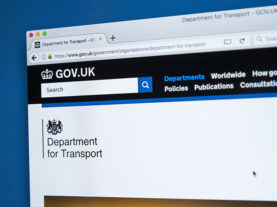In 2022, the government consulted on changes to driving licence flexibility for alternative-fuel vehicles (AFVs). This consultation aimed to support AFV uptake and ensure that operators transitioning to cleaner vehicles do not face additional requirements when doing so.
The flexibility refers to an additional weight allowance allowed for a van (normally 3.5t) to 4.25t to accommodate the weight of a battery. Otherwise known as the 4.25t derogation or the technical term: Category B driving licence concession for alternative-fuel vehicles.
The 4.25t gross vehicle weight derogation allows drivers who hold a category B (passenger car) driver licence to drive an alternative fuel vehicle up to 4.25t if they are transporting goods, undertake compulsory training, and are not towing a trailer.
The summary of responses indicates the majority of those who responded are calling for:
- Removal of the training requirement – 72% in favour
- Expanding the derogation to other vehicle types – 75% in favour
- Allowing towing – 72% in favour
In the BVRLA’s response, it raised additional concerns about the fact that this pushes a van to be treated like an HGV which brings challenges with MOT testing. Also, due to stipulations imposed via the digital tachograph and EU drivers’ hours, it also means that drivers cannot go beyond a 100km or 62-mile radius of the vehicles base.
The BVRLA will continue to lobby for change as it sees this as fundamental to supporting the transition to zero-emission vans and believes some of the regulations linked with the 4.25t derogation are impacting members’ ability to make the switch.
The summary of responses is now live: Driving licence flexibility for alternatively-fuelled vehicles - GOV.UK (www.gov.uk) and the feedback is currently being analysed by Government. The BVRLA will keep members informed and share details when the outcome is published.



